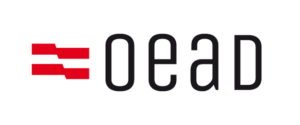Creatively Developing and Promoting Responsible Data Practices in Schools.
Daten*bilden has the key aim of exploring how mindful data practices can be developed and promoted in secondary schools, and whether this can contribute to reducing the digital divide.
Bildung is increasingly characterised by data practices. This means that more and more activities, actions and meaning-making are (co-)shaped by (quantified) data. For example, the use of (educational) platforms affects teaching and students' learning experiences. At the same time, data practices are shaped by norms, biases and prejudices, which can lead to the reinforcement of educational inequalities. The three levels of the digital divide – access, use and outcomes – are also reflected in data practices. The use of artificial intelligence has the potential to further increase these inequalities if nothing is done to address them.
The project Daten*bilden is developing data practices in schools together with pupils from three secondary schools. Mindful data practices take into account the complexity of life realities and support minoritised people to realise their interests. On the one hand, the aim is to develop appropriate teaching/learning concepts in the spirit of computational empowerment. On the other hand, ideas for the ideal educational platform of the future will be developed together with the students. The aim is to support students in developing their ability for self-determination, empowerment and solidarity in the digital world and to discover approaches for democratic and emancipatory digital educational infrastructures.
In addition to scientific publications, the results of the project will be incorporated into guidelines for inclusive design of educational platforms and open access teaching/learning methods for digital competences.
Scientific Objectives
- Developing and promoting mindful data practices in schools that take into account the realities of students from diverse backgrounds.
- Developing teaching and learning approaches that support students in realising their capacities for self-determination, empowerment and solidarity in the digital world.
- Developing guidelines and ideas for creating inclusive, thoughtfully implemented data infrastructures in schools that put users' needs first.



